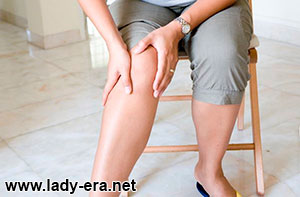Reasons for Edema Occurrence during Menopause
Water retention is one of the most common complaints in females. The problem appears now and then as a result of specific body processes and hormonal imbalances. However, the good news here is the simplicity of its treatment and elimination of its symptoms. A range of lifestyle changes and other modifications can contribute greatly to the improvement of the condition. Learn the reason for the disorder appearance, as it is the best way to treat it and avoid further occurrence.
Symptoms of fluid retention may differ greatly, depending on the patient and her overall health state. However, most commonly, they include:

- Visible lines on your legs from elastic pans or sock marks;
- Swings in the weight, with the insignificant difference;
- Swelling of the feet, ankles, and hands;
- Edema;
- Puffy eyes and other body parts.
Top Causes of Condition Development during Menopause
While the hormonal level is changing during menopause, it can interfere with water retention greatly. A range of other factors can contribute to the problem, including:
- Exercise. Regular workouts help to increase water circulation and prevent retention;
- Abnormal sodium in the organism. Consider the products you consume, specifically during menopause, as many of them can trigger unwanted reactions and retention aggravation;
- Sitting or standing much. To get proper fluid circulation, your body needs to move. Therefore, you need to minimize long periods of standing or sitting in the same place;
- Eating habits. Decreased or increased sugar, carbohydrates and pop levels in food can launch problems related to water retention;
- Deficit of vitamin B and protein;
- Hormone fluctuations, which is a peculiar feature of menopause in women.

These factors can contribute greatly to edema occurrence and related fluid retention disorders, especially during menopause in women. Contact your medical specialist in case the condition is aggravating, and you have serious problems dealing with it.
Change your diet and modify routine habits to feel significant condition improvement and eliminate unwanted symptoms. Eat products that are natural diuretics, drink much water, exercise much and keep hormonal changes under control.




